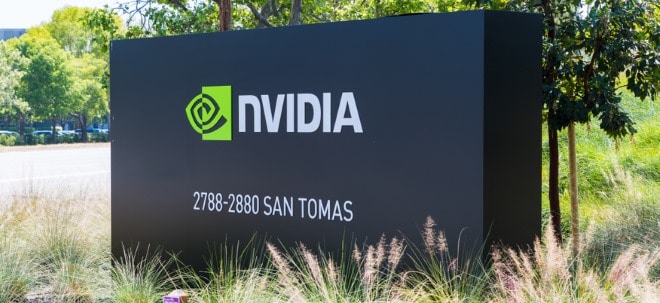Sehr positive Testergebnisse haben Alexion gestern angeschoben.
Gruss E.
Alexion Announces Results of Two Independent Phase II Acute Myocardial Infarction Clinical Trials Presented at the American Heart Association's Scientific Sessions 2002
- Mortality Reduction Seen in Patients Treated with Pexelizumab in COMMA
Primary Angioplasty Trial -
CHESHIRE, Conn., Nov. 18 /PRNewswire-FirstCall/ --
Alexion Pharmaceuticals Inc. (Nasdaq: ALXN) announced today that Dr.
Christopher Granger, M.D., FACC, Associate Professor of Medicine, Director,
Cardiac Care Unit of the Duke University Medical Center and Co-Director of
Clinical Trials, Duke Clinical Research Institute, presented the preliminary
results of two independent Phase II clinical trials, COMMA and COMPLY,
evaluating the use of pexelizumab in acute myocardial infarction (AMI)
patients. Alexion is developing pexelizumab together with Procter & Gamble
Pharmaceuticals.
(Photo: http://www.newscom.com/cgi-bin/prnh/20021118/NYM032 )
COMMA Trial: The first study, called the COMMA trial, evaluated the
possible benefits of pexelizumab treatment in acute myocardial infarction
patients who underwent primary percutaneous transluminal coronary angioplasty
(PTCA). Results from COMMA, or "Complement Inhibition in Myocardial Infarction
Treated with PTCA", showed that pexelizumab did not reach its primary endpoint
of infarct size reduction as measured at 72 hours. However, pexelizumab
administration was associated with a dose-dependent and statistically
significant 70% reduction in 90 day mortality (placebo 5.9% vs. pexelizumab
bolus/infusion 1.8%, p=.014), an important prospectively defined secondary
endpoint.
Dr. Granger, who is Chairman of the COMMA and COMPLY Steering Committee,
commented, "The COMMA results are very exciting because this is the only
recent trial to find a mortality reduction with an adjunct to reperfusion
therapy. The fact that mortality was reduced but that measured infarct size
was not suggests that the effect may be through a completely novel mechanism
of action. Inhibiting complement appears to prevent a variety of inflammatory
pathways, including production of cytokines, programmed cell death, and nitric
oxide, each of which could contribute to death following acute MI."
In COMMA, pexelizumab 2.0 mg/kg (n=262), pexelizumab 2.0 mg/kg followed by
a 20 hour infusion at 0.05 mg/kg/hr (n=281), or placebo (n=271) was
administered in a double-blind and randomized manner at 92 North American
sites to 814 acute myocardial infarction patients who received angioplasty.
Pexelizumab appeared to be well tolerated with the most common adverse events
being chest pain, hypotension, nausea, and ventricular tachycardia. The
mortality benefit with pexelizumab bolus/infusion observed at 90 days was
maintained through 180 days. At 180 days, pexelizumab bolus/infusion was still
associated with a significant 57% relative reduction in mortality compared to
placebo administration (placebo 7.4% vs. pexelizumab bolus/infusion 3.2%,
p=0.035). The incidence of cardiogenic shock was also lower with pexelizumab
bolus/infusion (placebo 5.2% vs. pexelizumab bolus/infusion 2.8%, p=0.19)
compared to placebo. As shown in the included survival analysis figure of the
COMMA trial, pexelizumab administration was associated with an immediate,
dose-dependent reduction in mortality that was sustained throughout the
observation period (p=0.018 for the entire six month observation period). This
significant reduction in mortality with pexelizumab was observed in the
context of excellent overall care, with the concomitant treatment of
approximately 90% - 95% of patients in each treatment arm with aspirin,
coronary stents, IIb/IIIa antagonists, and beta blockers.
COMMA Trial: Dose-Dependent Reduction in Mortality graph available at:
http://www.newscom.com/cgi-bin/prnh/20021118/NYM032
COMPLY Trial: The second study, called the COMPLY trial, evaluated the
possible benefits of pexelizumab treatment in patients who sustained an AMI
and were treated with a thrombolytic. COMPLY, or "Complement Inhibition in
Myocardial Infarction Treated with Thrombolytics", which was conducted
globally, did not reach its primary endpoint of infarct size reduction
measured at 72 hours.
In COMPLY, pexelizumab 2.0 mg/kg (n=304), pexelizumab 2.0 mg/kg followed
by a 20 hour infusion at 0.05 mg/kg/hr (n=309), or placebo (n=307) was
administered in a double-blind and randomized manner at 87 North American
sites, 22 Eastern European sites, and 10 South American sites to 920 acute
myocardial infarction patients who received thrombolytics. Pexelizumab
appeared to be well tolerated with the most common adverse events being
headache, chest pain, hypotension, and ventricular tachycardia. The North
American (n=434) population appeared to differ from the Eastern European
(n=408) and South American (n=78) populations in several respects, both at
baseline prior to drug administration and in terms of standard medical
practice after hospital admission. Patients outside North America had greater
cardiac damage at baseline and also lower utilization of revascularization
procedures after study entry than did patients in North America.
There was no reduction in mortality at 90 days in the overall COMPLY
population. However, a prespecified analysis of the pooled COMMA and North
American COMPLY population (n=1248 in the total North American population)
showed that, in this population, pexelizumab bolus/infusion was associated
with a significant 55% reduction in 90 day mortality (placebo 6.3% vs.
pexelizumab bolus/infusion 2.8%, p=.019). Separately, stroke, a complication
of thrombolytic therapy, was reduced in the overall COMPLY population (placebo
2.6% vs. pexelizumab bolus/infusion 1.3%, p=0.26). Overall, in the combined
COMMA and COMPLY population, pexelizumab appeared to be well-tolerated. The
incidence of serious adverse events was similar in placebo (30%) and
pexelizumab bolus (28%) and pexelizumab bolus/infusion (25%) treated patients.
"We are particularly encouraged by the apparently robust improvement in
long-term mortality associated with pexelizumab administration demonstrated in
the Phase II COMMA trial," stated Leonard Bell, M.D., Chief Executive Officer
of Alexion Pharmaceuticals, Inc. "Certainly, in patients suffering life-
threatening acute cardiovascular disorders, mortality remains the clinical
gold standard. From a development point of view, the dose-dependent and
sustained reduction in mortality observed in the COMMA trial with pexelizumab
is consistent with the reduction in mortality observed with pexelizumab in the
pooled COMMA and North American COMPLY population and with pexelizumab in the
Phase IIb coronary artery bypass graft surgery trial reported at last year's
AHA meetings. Together with our partner Procter & Gamble, we are planning to
complete our analyses and then discuss these encouraging preliminary clinical
results with the FDA so as to plan appropriate subsequent development of
pexelizumab in patients suffering an acute myocardial infarction."
According to the 2002 Heart and Stroke Statistical Update from the
American Heart Association, approximately 850,000 Americans are predicted to
be admitted to a hospital with an AMI during the current year. From recent
studies in patients with AMI (refs 1-3), it is expected that approximately 5-
10% of such patients would die within approximately 6 months of their index
admission. Hence, approximately, 42,500-85,000 patients of these 850,000
patients would be expected to die from their acute myocardial infarction
within this timeframe.
Alexion is engaged in the discovery and development of therapeutic
products aimed at treating patients with a wide array of severe disease
states, including cardiovascular and autoimmune disorders, inflammation and
cancer. Alexion's two lead product candidates, pexelizumab and eculizumab, are
currently in eight clinical development programs. Alexion is developing
pexelizumab, an antibody fragment, in collaboration with Procter & Gamble
Pharmaceuticals. Together the firms have initiated a Phase III clinical study
with pexelizumab in cardiopulmonary bypass patients, and have completed two
large Phase II studies with pexelizumab in acute myocardial infarction
patients. Alexion's other lead product candidate, eculizumab, is being studied
in a Phase IIb trial for the treatment of rheumatoid arthritis. In addition to
the Phase II clinical trials in membranous nephritis and lupus nephritis,
eculizumab is in earlier stage clinical development for the treatment of
paroxysmal nocturnal hemoglobinuria and dermatomyositis. Through its wholly
owned subsidiary, Alexion Antibody Technologies, Inc., Alexion is engaged in
discovering and developing a portfolio of additional antibody therapeutics
targeting severe unmet medical needs. This press release and further
information about Alexion Pharmaceuticals, Inc. can be found on the World Wide
Web at: http://www.alexionpharm.com .
(1) Anderson et al. a Contemporary Overview of Percutaneous Coronary
Interventions: The American College of Cardiology-National Cardiovascular Data
Reigstry (ACC-NCDR).J Am Coll Cardiol. 2002;39:1096-1103.
(2) Shihara et al. In-Hospital and One-Year Outcomes for Patients
Undergoing Percutaneous Coronary Intervention for Acute Myocardial Infarction.
Am J Cardio. 2002;90:932-936.
(3) Every et al. A Comparison of Thrombolytic Therapy With Primary
Coronary Angioplasty for Acute Myocardial Infarction. N Engl J Med
1996;335:1253-60.
This news release contains forward-looking statements. Such statements are
subject to certain factors which may cause Alexion's plans to differ or
results to vary from those expected, including the results of pre-clinical or
clinical studies (including termination or delay in clinical programs or
inability to move forward to the next Phase of clinical development), the need
for additional research and testing, delays in developing or arranging
satisfactory manufacturing capability, inability to access capital and funding
on a timely basis and on favorable terms, delays in development of or adverse
changes in status of commercial relationships, the possibility that favorable
results of earlier clinical trials are not predictive of safety and efficacy
results in later clinical trials, dependence on Procter & Gamble
Pharmaceuticals for performance of development and commercial matters related
to pexelizumab, the risk that third parties won't agree to license us on
reasonable terms their intellectual property necessary for us to develop and
commercialize our products, and a variety of other risks set forth from time
to time in Alexion's filings with the Securities and Exchange Commission,
including but not limited to the risks discussed in Alexion's Annual Report on
Form 10-K for the year ended July 31, 2002. Except in special circumstances in
which a duty to update arises under law when prior disclosure becomes
materially misleading in light of subsequent events, Alexion does not intend
to update any of these forward-looking statements to reflect events or
circumstances after the date hereof or to reflect the occurrence of
unanticipated events.
Contacts:
Alexion Pharmaceuticals, Inc.
Leonard Bell, M.D.
Chief Executive Officer
(203) 272-2596
|


 Thread abonnieren
Thread abonnieren

